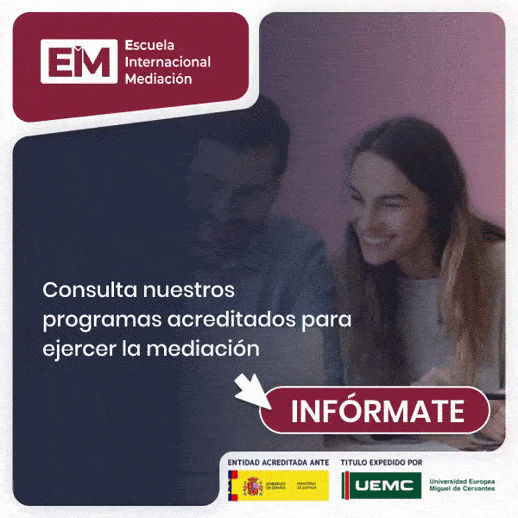Although in Spain family mediation is still not the option most used by citizens, the data reveal that the 80% of people who voluntarily attend a mediation process finally reach an agreement (compared to the remaining 20% that ends up resolving the conflict by ordinary judicial means).
There is still a “generalized lack of knowledge” about mediation, in the words of Julia Pérez, director of the Union of Family Associations (Unaf). The majority of people who go to mediation do so through word of mouth, by meeting other couples who have used it and it has worked for them.
Family mediation cases related to the couple can be for situations of separation, divorce or child custody, among others. It is the parties themselves who accept the intervention of an impartial third person, the mediator, with the aim of reaching mutually satisfactory agreements that allow them to reorganize their relationship. A mediation process lasts approximately between five and twelve sessions, 1 hour each.
If the parties voluntarily attend mediation, the success will be much greater since there is mutual interest in solving the problem. However, in cases referred by judges, the parties are more restricted in their own position and it is more difficult to reach an agreement.
The validity of the mediation agreement can be materialized before a notary, which means that, in the event of non-compliance, there is the option of going to court to demand compliance with said resolution (considered as a court ruling).
Of the couples who undergo a family mediation process, the majority profile found is that of parents between 40 and 49 years old, with an average of 10 years of cohabitation and with two children, according to Unaf.
The benefits of family mediation
The positive effects of mediation in the family environment and in couple conflicts are overwhelming: it is a much faster and cheaper process than filing a lawsuit and going to court. Furthermore, in mediation the psychological and emotional factor of the parties involved plays a greater role, who must practice empathy and active listening to try to reach a solution that satisfies both (and the children and the rest of the family).
For mediation to continue growing and functioning, it is necessary to promote it from all spheres and areas, to inform all citizens so that they themselves, based on their own knowledge about the different existing alternatives, can choose and demand the mediation service for couple conflicts.
It is possible to undergo a mediation procedure in the following ways: by going to the social services of city councils throughout Spain, through the Family Support Centers of each autonomous community or by referral from a judge.



